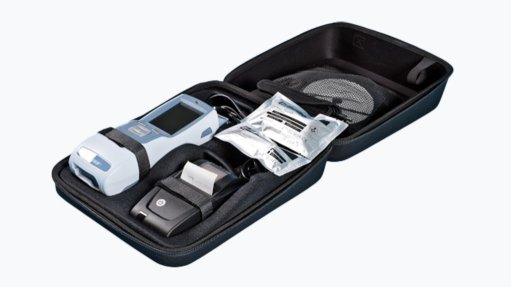Storage should aim to address cost reduction
Ensuring that renewable energy is a useful asset to the grid and that the companies that own and operate it are profitable, while also producing less expensive energy, is a complex job.
This is according to technology provider NEC XON alternative energy sales head Wessels Wessels.
He adds that storage is not just a “back-up solution”, as it should also aim to reduce the cost of electricity for customers.
“That maximises the investment beyond being an asset-in-waiting, so does using it to prioritise how stored energy is consumed, according to how the requirements or grid stability changes.”
While new technologies “help a lot”, he notes that they are complex as each come with their own features and benefits, trade-offs and downsides. As such, they need to be integrated in the right mixtures.
“It is an exceptionally difficult task to do when you add different manufacturers, technologies, systems, devices, use scenarios and desired outcomes into the mix.
“You cannot imagine the elaborate sophistication required to balance production, storage, transmission and distribution when you have a few large energy plants,” says Wessels.
He explains that when you multiply the number of generating sites and types with wind and solar, that fluctuate a lot compared to steadier types such as coal, nuclear and hydro, then one can begin to see how the complexity ramps up even more.
“Fortunately, we now have an equation that takes all of that into account, regardless of whether your solution is for the national grid, regional, local, home, commercial or industrial case,” he enthuses.
This equation, he says, also handles all technologies and types of systems and considers a raft of elements.
These elements include the depth of discharge, usable energy ratios, relative capacities, voltage, efficiencies of power conversion kit, the cost of equipment as well as how that later impacts repair costs, auxiliary power costs related to cooling, environmental control requirements, lifespan of all equipment as well as how to dispose at end of life, besides others.
“The levelised cost of using storage (LCUS) is the world’s most advanced metric for calculating energy storage costs. It is useful for comparing the cost of different energy storage solutions, regardless of their underlying technologies, formats, designs and manufacturer,” Wessels highlights.
Further, its other uses include comparing the costs of different applications of a particular energy storage technology or product; and helping to illuminate how certain operating modes can affect the total cost of ownership.
He underscored that LCUS helps to “work things out quickly” such as whether one should buy cheaper batteries to store and deliver enough charge at the start of the project and deal with their other limitations in other ways.
Added to that is whether one should try to spend a little more on better quality batteries initially and recoup more than the expense over the duration of the project.
Moreover, Wessels asserts that LCUS will even consider aspects such as weight of the batteries and space they consume, which will impact the cost of the project.
“LCUS also reveals how efficiency and management technologies can impact the lifespan of the equipment in meeting the project goals. It also touches other factors, such as how different technologies, lead-acid or lithium, for example, impact cooling.
“The ability to work this out, irrespective of the technologies or manufacturers or integrators, suppliers and other partners, is crucial to creating successful systems that keep on working,” says Wessels.
He underlines that that South Africa’s “unique energy challenges” could be met through applications like peak shaving; time shifting stored energy; better load balancing; better grid, transmission and distribution management; and more cost-effective energy solutions.
This can be achieved by prioritising stored energy use on-the-fly and maintaining grid stability. “In this case, LCUS shifts the goalposts tremendously.” Wessels adds.
“This kind of stuff is now fairly run of the mill for companies like ours in other places around the globe. There are a lot of successful commercial precedents that encourage deploying them.”
He points out that the energy storage market is so well established that even banks and other financiers have created financial instruments to fund renewable energy projects throughout Africa.
“The market has matured to the point now where the reinsurers such as Hannover Re will underscore power yield for just 1% of revenues. That is a game changer made possible by how much progress we have all made by working together to achieve viable solutions that are valuable to all stakeholders,” Wessels concludes.
Article Enquiry
Email Article
Save Article
Feedback
To advertise email advertising@creamermedia.co.za or click here
Announcements
What's On
Subscribe to improve your user experience...
Option 1 (equivalent of R125 a month):
Receive a weekly copy of Creamer Media's Engineering News & Mining Weekly magazine
(print copy for those in South Africa and e-magazine for those outside of South Africa)
Receive daily email newsletters
Access to full search results
Access archive of magazine back copies
Access to Projects in Progress
Access to ONE Research Report of your choice in PDF format
Option 2 (equivalent of R375 a month):
All benefits from Option 1
PLUS
Access to Creamer Media's Research Channel Africa for ALL Research Reports, in PDF format, on various industrial and mining sectors
including Electricity; Water; Energy Transition; Hydrogen; Roads, Rail and Ports; Coal; Gold; Platinum; Battery Metals; etc.
Already a subscriber?
Forgotten your password?
Receive weekly copy of Creamer Media's Engineering News & Mining Weekly magazine (print copy for those in South Africa and e-magazine for those outside of South Africa)
➕
Recieve daily email newsletters
➕
Access to full search results
➕
Access archive of magazine back copies
➕
Access to Projects in Progress
➕
Access to ONE Research Report of your choice in PDF format
RESEARCH CHANNEL AFRICA
R4500 (equivalent of R375 a month)
SUBSCRIBEAll benefits from Option 1
➕
Access to Creamer Media's Research Channel Africa for ALL Research Reports on various industrial and mining sectors, in PDF format, including on:
Electricity
➕
Water
➕
Energy Transition
➕
Hydrogen
➕
Roads, Rail and Ports
➕
Coal
➕
Gold
➕
Platinum
➕
Battery Metals
➕
etc.
Receive all benefits from Option 1 or Option 2 delivered to numerous people at your company
➕
Multiple User names and Passwords for simultaneous log-ins
➕
Intranet integration access to all in your organisation


















